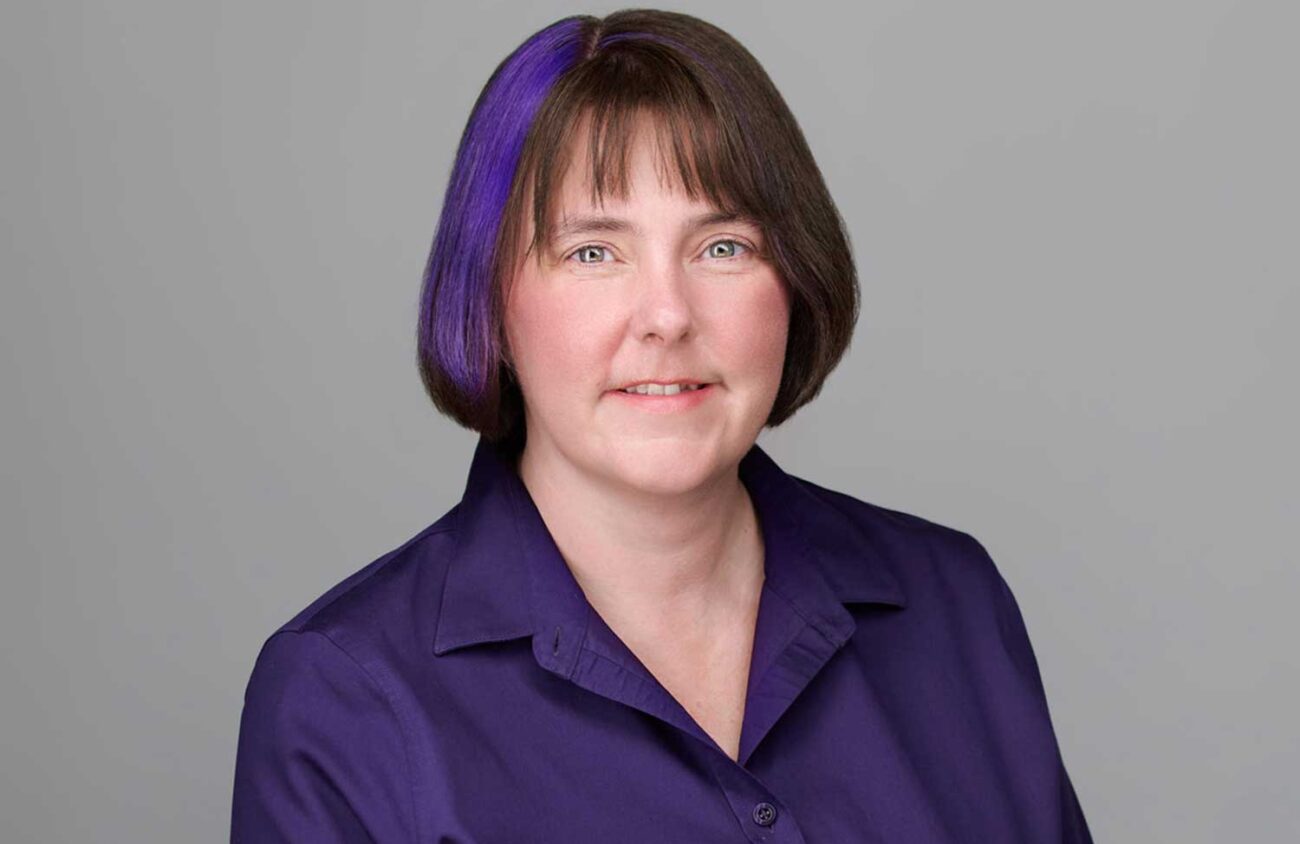It’s not news that Eliza Kashinsky likes to read city zoning laws. When Eugene Weekly covered her Eugene City Council campaign four years ago, the paper noted she mentioned it in every interview. And when Kashinsky relaunched her campaign earlier this year, she again mentioned her love for reading those regulations, saying, “I know it’s a little weird, but it’s good weird, I hope.”
Kashinsky says dismantling the systemic barriers to create affordable housing is one of her top priorities for her campaign for the Ward 1 seat, encompassing downtown Eugene. She said she’s spent the past decade working to remove barriers for accessory dwelling units, such as garage apartments or backyard cottages, from zoning laws so that Eugeneans can access these affordable options.
“She’ll dig into an issue and pull out data that is really helpful for the people around her,” Councilor Jennifer Yeh tells EW, adding that Kashinsky herself “asks really thoughtful questions” about the data she finds.
Kashinsky also said she understands the importance of a walkable city. In 2015 she co-founded WE CAN, the Walkable Eugene Citizens Advisory Network.
“Like so many of my neighbors, I live in Ward 1, because I just wanted the option to get around without being dependent on a car,” Kashinsky said to listeners at her Claim 52 campaign launch. She served on the Eugene Active Transportation Committee from 2014 to 2016, and then in 2017 was appointed to the Eugene Budget Committee where she said she continued her work advocating for affordable housing and other human services.
Another issue that Kashinsky said she wants to prioritize is climate change. She says her initial focus is moving forward with the Climate Action Plan (CAP), which aims to reduce fossil fuel use by 50 percent by 2030 compared to 2010 usage, and to reduce our greenhouse gas emissions by 7.6 percent annually. However, during her campaign launch, she recognized Eugene’s budgetary challenges, which she says have been a barrier to moving things like CAP forward.
She says the council needs to look at what things have a big impact without a big price tag attached to them.
“That’s one of the reasons why I’m looking so much at zoning is because if we change the zoning to make things possible, then that makes it easier for things to happen in a city,” Kashinsky says. “It’s way cheaper to change the zoning than it is to build a building.”
She added that it’s important to realize that the budget issues are both short-term and long-term and that long term the city needs to look at its expenses and state policies to figure out how to get to a more secure financial footing.
At the beginning of her campaign speech, Kashinsky told the crowd that one of the first questions she gets when she says she’s running for Eugene City Council is “Why?”
“Why on Earth do you want to? It barely pays. People get really mad at you. It has the most intense hiring process I’ve ever seen. I’ve worked in human resources, and if I told folks they had to knock on every door in town as part of their job interview, we would not have applicants,” Kashinsky continued. “But I love Eugene. I love the passion and the compassion of our community. There are disagreements and obstacles and things are hard. There are so many people, at the end of the day, working to figure out how to make things better.”
City councilors make a stipend of $20,664 a year.
According to Orestar, Kashinsky has so far raised about $12,000 with contributors such as Mayor Lucy Vinis and the Democratic Party of Oregon. Current councilor Emily Semple, who is not running again, attended Kashinsky’s campaign launch as an observer.
Kashinksy’s endorsements include Eugene city councilors Alan Zelenka, Jennifer Yeh, Lyndsie Leech and Matt Keating, and Lane County commissioners Laurie Trieger and Heather Buch. Kashinsky faces retired professor Ted Coopman and downtown business owner Ethan Clevenger in the Ward 1 race.
City Club of Eugene hosts Ward 1 and Ward 7 candidates in a noon, Friday March 29 forum at the Maple Room at the Inn at the Fifth.
Help keep truly independent
local news alive!
As the year wraps up, we’re reminded — again — that independent local news doesn’t just magically appear. It exists because this community insists on having a watchdog, a megaphone and occasionally a thorn in someone’s side.
Over the past two years, you helped us regroup and get back to doing what we do best: reporting with heart, backbone, and zero corporate nonsense.
If you want to keep Eugene Weekly free and fearless… this is the moment.
